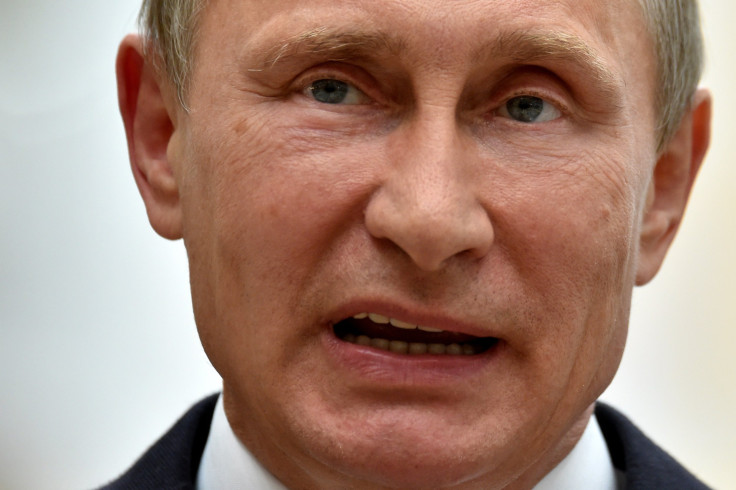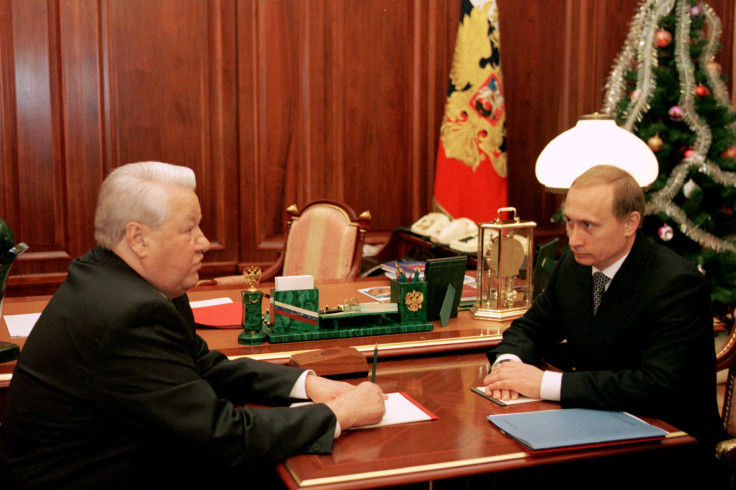Vladimir Putin's 15 Years In Power: 5 Ways Russia Has Changed

Vladimir Putin took over for former Russian President Boris Yeltsin in a surprise ceremony just before the new millennium on New Year's Eve 1999 and he's been in a position of power ever since, either as president or prime minister. So what's changed? A lot, especially recently. Putin went from a potential partner of the United States who even said Russia could join NATO after taking the presidency, to the West's most contentious opponent. Here are five things that have changed since Putin became president of Russia.
1. The ruble is worth less than its ever been: The ruble was worth about 27 to 1 U.S. dollar when Vladimir Putin was handed the presidency by Boris Yeltsin. Just before he took office, the ruble was extremely volatile, but Putin managed to stabilize it and gradually grow its value against the dollar all the way up until the 2008 global economic crisis. Just before the crisis hit in late 2008, the ruble was worth just under 24 to 1 USD. The ruble hit an all-time high, meaning it’s worth the least its ever been, this month when it was measured at 79 to 1 USD. Russia is in its worst economic crisis since 2008, mostly due to free-falling oil prices but also because of Western sanctions over its alleged involvement in Ukraine.
2. Russia is spending more on its military than ever: Putin has led Russia through its biggest military expansion since the fall of the USSR. In 1999, Russia spent around 165 billion rubles ($2.7 billion) per year on its military. That doubled by 2001, and by 2009, it was 10 times that amount. Russia became the third-largest military spender in the world this year, surpassing the United Kingdom and sitting behind China and the United States. Russia looks to continue that expansion through 2016. The government plans to spend 3.03 trillion rubles on its military next year, including updating equipment and spending on its nuclear capabilities, according to Sputnik News. The Russian Security Council called NATO Russia's biggest external threat earlier in December and it plans to do more to assert Russia's sphere of influence around its borders, particularly to the West.
3. Russia is now 10,000 square miles bigger than it was in 1999: Although a number of Western countries will dispute that it was legitimate, Russia grew by 10,000 square miles when it annexed the Ukrainian peninsula of Crimea in mid-March. Russian military forces also now occupy South Ossetia and Abkhazia, two breakaway Georgian states that together make up just under 5,000 square miles.

4. Putin has gone from an unknown interim prime minister to one of the most powerful men on the planet: Putin was a largely unknown political figure when he was appointed prime minister by then-Russian President Boris Yeltsin in August 1999. Many figured he’d be just one in a long line of PMs during the volatile period, but just four months later he was made president on New Year's Eve 1999 when Yeltsin surprised the world with his resignation. The former KGB lieutenant colonel immediately became popular for his decisive actions against separatists in Chechnya as prime minister, making him a favorable figure among Russians from the start of his presidency. Putin's reputation as a strong-willed, tough and no-nonsense leader has kept him popular (and in power) for 15 years. Even with the Russian economy in shambles, he now enjoys approval ratings in the mid-80 percentages, some of his highest ever. After Putin stirred up anger worldwide by supporting pro-Russian rebels in Ukraine, Forbes chose him as the Most Powerful Man in the World. With Putin at the helm, Russia has once again asserted itself as a major player on the world stage.
5. Civil liberties and freedom of expression are weaker than ever: Many world leaders expressed optimism about Putin’s promises to uphold “the freedom of speech, the freedom of conscience [and] the freedom of the mass media,” in his first New Year’s address as president, but 15 years later Russia looks quite different. The government has gone after political dissidents -- most recently punishing the younger brother of anti-Putin crusader Alexei Navalny on Monday with imprisonment for three and a half years -- taken over a number of private businesses and expanded its state-owned media. While Russia never had a fully free press, it’s now ranked in the lower percentile in Reporters Without Borders’ Press Freedom Index. Putin championed anti-gay legislation that went into effect July 2013 banning “propaganda of non-traditional sexual relationships” and has vehemently upheld that law with strong crackdowns on the activities of LGBT rights advocates.
© Copyright IBTimes 2024. All rights reserved.












